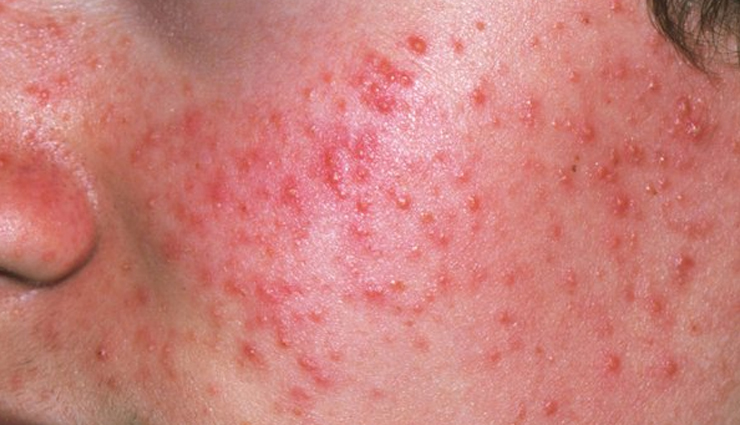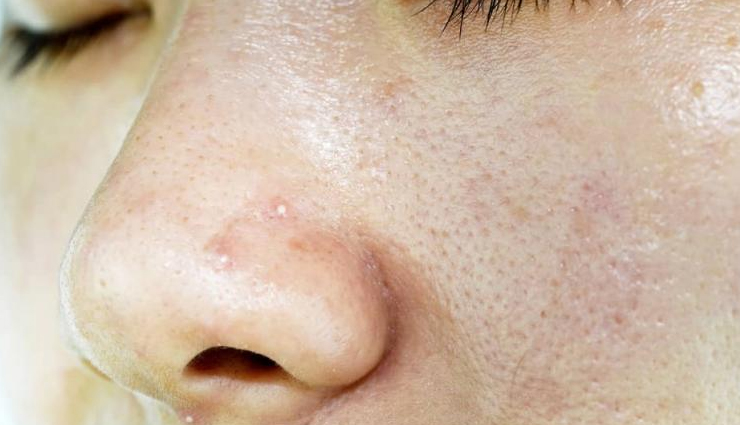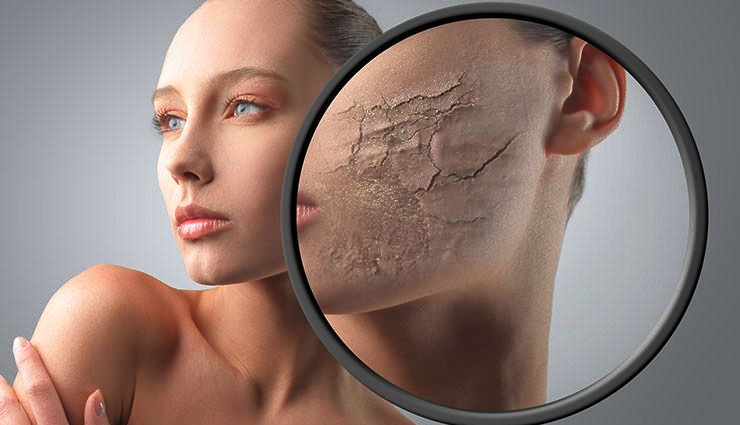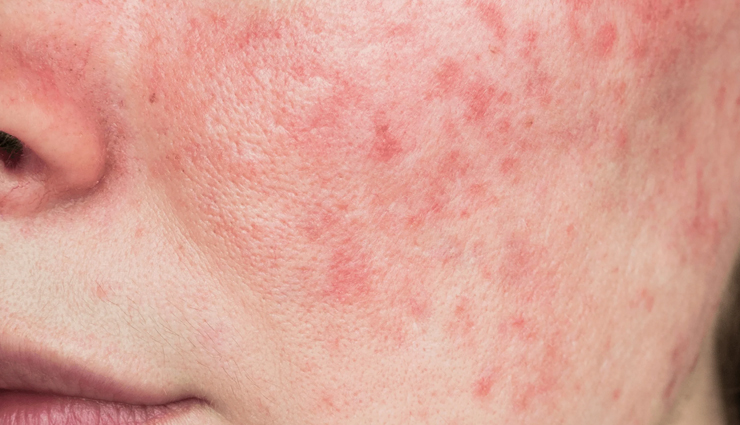5 Least Known Benefits Of Using Salicylic Acid For Skin
By: Priyanka Maheshwari Mon, 15 May 2023 3:15:31

Salicylic acid is a popular skincare ingredient known for its effectiveness in treating various skin concerns. It is a beta-hydroxy acid (BHA) that is derived from willow bark, wintergreen leaves, or synthesized in a laboratory. Salicylic acid is widely used in over-the-counter skincare products, including cleansers, toners, creams, gels, and acne treatments.
One of the primary benefits of salicylic acid is its ability to exfoliate the skin. It works by penetrating the pores and breaking down the bonds between skin cells, effectively removing dead skin cells and unclogging pores. This exfoliating action helps to prevent the formation of blackheads, whiteheads, and acne breakouts.
Salicylic acid is particularly beneficial for those with oily or acne-prone skin. It helps to control excess oil production, reduce inflammation, and fight bacteria that can contribute to acne formation. By keeping the pores clear and reducing the buildup of dead skin cells, it promotes a smoother, clearer complexion.
In addition to its acne-fighting properties, salicylic acid also has mild anti-inflammatory and skin-soothing effects. It can help to calm redness and irritation associated with conditions like rosacea and psoriasis. However, it's important to note that salicylic acid may not be suitable for everyone, especially those with sensitive or dry skin. It is advisable to do a patch test before incorporating products containing salicylic acid into your skincare routine.
When using products with salicylic acid, it's essential to follow the instructions provided and not overuse them. Excessive or prolonged use of salicylic acid can lead to dryness, peeling, and irritation. It is also important to protect your skin from sun exposure when using salicylic acid, as it can increase the skin's sensitivity to UV rays.
Overall, salicylic acid is a valuable skincare ingredient for those looking to address acne, oily skin, and clogged pores. Its exfoliating and anti-inflammatory properties make it a go-to choice for many individuals seeking clearer and healthier-looking skin.

# Treats Acne
Salicylic acid is highly effective in treating acne due to its unique properties. Here's how it works:
- Exfoliation: Salicylic acid is a keratolytic agent, which means it helps to break down the bonds between dead skin cells on the surface of the skin. By exfoliating the skin, it helps to unclog pores and remove the buildup of dead skin cells, oil, and debris that can contribute to acne formation. This action prevents the formation of comedones, such as blackheads and whiteheads.
- Penetration into the pores: Unlike some other exfoliating agents, salicylic acid is oil-soluble. This property allows it to penetrate into the pores deeply. Once inside the pores, it works to dissolve the excess oil and sebum that can block the follicles, leading to the formation of acne.
- Anti-inflammatory effects: Acne is often accompanied by inflammation, resulting in redness, swelling, and discomfort. Salicylic acid possesses anti-inflammatory properties, which help to reduce inflammation in the affected areas. By calming the skin, it can help alleviate the redness and swelling associated with acne breakouts.
- Antibacterial action: Salicylic acid also exhibits mild antibacterial properties, particularly against the bacteria Propionibacterium acnes (P. acnes). This bacterium resides on the skin and plays a role in the development of acne. By reducing the population of P. acnes, salicylic acid helps to prevent the growth of acne-causing bacteria and the subsequent formation of inflammatory acne lesions.
When using salicylic acid for acne treatment, it is typically found in concentrations ranging from 0.5% to 2%. It is commonly used in various forms, such as cleansers, toners, spot treatments, and peels. It is important to follow the instructions provided with the product and start with a lower concentration if you have sensitive or dry skin. Additionally, salicylic acid should be used consistently as part of a skincare routine to maintain its efficacy in preventing acne breakouts.
While salicylic acid is generally safe for most people, some individuals may experience side effects such as dryness, peeling, or irritation. It is advisable to do a patch test before using it on larger areas of the skin, and if any adverse reactions occur, discontinue use and consult a dermatologist.

# Treats Whiteheads and Blackheads
Salicylic acid is particularly effective in combating whiteheads and blackheads due to its exfoliating and pore-clearing properties. Here's how it works specifically against these types of acne lesions:
- Exfoliation: Salicylic acid is a keratolytic agent, meaning it helps to break down the bonds between dead skin cells on the skin's surface. In the case of whiteheads and blackheads, the excessive buildup of dead skin cells contributes to the clogging of pores. Salicylic acid penetrates the pores and dissolves the accumulated dead skin cells, helping to unclog the pore and prevent the formation of new whiteheads and blackheads.
- Dissolving sebum and oil: Whiteheads and blackheads are formed when the pores become blocked with sebum (oil) and dead skin cells. Salicylic acid is oil-soluble, which allows it to penetrate the pore and dissolve the excess oil and sebum that contribute to the formation of these acne lesions. By dissolving the oil and sebum, salicylic acid helps to unclog the pores and prevent the formation of whiteheads and blackheads.
- Preventing future clogs: Salicylic acid's exfoliating action not only helps to clear existing whiteheads and blackheads but also plays a crucial role in preventing future clogs. By regularly exfoliating the skin and removing the dead skin cells, salicylic acid reduces the likelihood of pores becoming blocked, which helps to keep whiteheads and blackheads at bay.
- Anti-inflammatory effects: Salicylic acid has mild anti-inflammatory properties, which can be beneficial in reducing redness and inflammation associated with whiteheads and blackheads. By calming the skin, it helps to diminish the appearance of these acne lesions and promote a more even complexion.
When using salicylic acid to combat whiteheads and blackheads, it is often included in topical treatments such as cleansers, toners, serums, or spot treatments. It is important to use the product as directed and start with a lower concentration if you have sensitive skin. Consistent use is key to achieving and maintaining results.
It is worth noting that while salicylic acid can be effective in treating whiteheads and blackheads, it may not work for everyone. In some cases, professional intervention or a combination of different acne-fighting ingredients may be necessary. If you're experiencing persistent or severe acne, it is advisable to consult a dermatologist for personalized advice and treatment recommendations.

# Removes Dead Skin Cells
Salicylic acid effectively removes dead skin cells through its exfoliating action. Here's how it works:
- Penetration into the skin: Salicylic acid is a small molecule that can penetrate the skin's surface and enter the pores. Its oil-soluble nature allows it to dissolve in the sebum and oil present on the skin, facilitating its penetration into the pores.
- Dissolving intercellular glue: Once inside the pores, salicylic acid acts as a keratolytic agent. It works by breaking down the bonds between skin cells, specifically targeting the intercellular glue known as desmosomes. These desmosomes hold the dead skin cells together, causing them to stick to the surface of the skin and potentially clog pores. By dissolving the intercellular glue, salicylic acid helps to loosen and detach the dead skin cells.
- Exfoliation and removal: As the intercellular glue is broken down, the dead skin cells are loosened and become easier to slough off. The exfoliating action of salicylic acid promotes the shedding of these dead skin cells, allowing for a smoother and clearer complexion. The exfoliation process also helps to unclog pores, prevent the formation of acne, and improve the overall texture and appearance of the skin.
- Encouraging cell turnover: In addition to removing dead skin cells, salicylic acid can also stimulate cell turnover. It helps to promote the growth of new skin cells, which can contribute to a fresher and more vibrant complexion. By increasing cell turnover, salicylic acid aids in maintaining healthy and youthful-looking skin.
It's important to note that while salicylic acid effectively removes dead skin cells, it should be used in moderation and as directed. Overuse or using products with high concentrations of salicylic acid can lead to excessive exfoliation, which may cause skin dryness, irritation, or sensitivity. It is also crucial to protect your skin from sun exposure when using salicylic acid, as it can increase the skin's sensitivity to UV rays.

# Soothes Inflammation
Salicylic acid possesses mild anti-inflammatory properties, which can help soothe inflammation on the skin. Here's how it works:
- Reducing redness and swelling: Inflammation is characterized by redness and swelling in the affected area. Salicylic acid has the ability to calm and alleviate these inflammatory responses. It works by inhibiting the production of certain inflammatory mediators, such as prostaglandins and cytokines, which play a role in the inflammatory process. By reducing the levels of these mediators, salicylic acid helps to minimize redness and swelling associated with inflammation.
- Unclogging pores and preventing bacterial growth: Inflammation can occur as a result of clogged pores and the growth of acne-causing bacteria. Salicylic acid helps to combat inflammation by penetrating the pores and clearing out the blockages. By removing excess oil, dead skin cells, and debris, it prevents the accumulation of material that can lead to clogged pores and subsequent inflammation. Additionally, salicylic acid has mild antibacterial properties, which can help inhibit the growth of bacteria that contribute to inflammation and acne breakouts.
- Exfoliating action: Salicylic acid's exfoliating properties also contribute to its anti-inflammatory effects. By removing dead skin cells and promoting cellular turnover, it helps to unclog pores and prevent the buildup of material that can trigger inflammation. The exfoliation process also promotes a smoother skin surface and can reduce the appearance of inflammation-related blemishes.
- Soothing the skin: Salicylic acid has a cooling and soothing effect on the skin, which can provide relief from irritation and discomfort associated with inflammation. It can help calm itching and stinging sensations, creating a more comfortable and balanced skin environment.
It's important to note that while salicylic acid can help soothe inflammation, it may not be suitable for everyone, especially those with sensitive or dry skin. In some cases, individuals may experience mild irritation or dryness when using salicylic acid. It is advisable to perform a patch test before incorporating products containing salicylic acid into your skincare routine and to consult a dermatologist if you have any concerns.

# Calms Sunburns
While salicylic acid is not typically recommended for treating sunburns, it can potentially offer some benefits in certain cases. Here's some information to consider:
- Anti-inflammatory properties: Salicylic acid has mild anti-inflammatory properties, which may help to reduce redness and inflammation associated with sunburns. However, it's important to note that the primary focus in treating sunburns is to soothe the skin and promote healing rather than exfoliation or pore-clearing, which are the main functions of salicylic acid.
- Exfoliation caution: Sunburned skin is already damaged and sensitive, and using salicylic acid as an exfoliating agent could potentially aggravate the condition. Salicylic acid may increase the sensitivity of sunburned skin and lead to further irritation or discomfort. Therefore, it is generally recommended to avoid using salicylic acid directly on sunburned skin.
- Moisturization and gentle care: The most effective approach to soothing sunburned skin is to focus on moisturization, hydration, and gentle care. Applying cooling and hydrating products like aloe vera gel, moisturizers containing soothing ingredients like chamomile or oatmeal, or using cold compresses can help relieve the discomfort and promote healing.
- Seek medical advice: If you have a severe sunburn or if it covers a large area of your body, it is advisable to seek medical advice. A healthcare professional can provide appropriate recommendations and treatments for your specific situation.
In summary, while salicylic acid may have some anti-inflammatory properties, it is generally not recommended as a primary treatment for sunburns. It is best to focus on gentle care, moisturization, and avoiding further irritation to promote healing and alleviate the symptoms of sunburn. If you are experiencing a severe sunburn, it is always advisable to consult a healthcare professional for proper evaluation and guidance.





